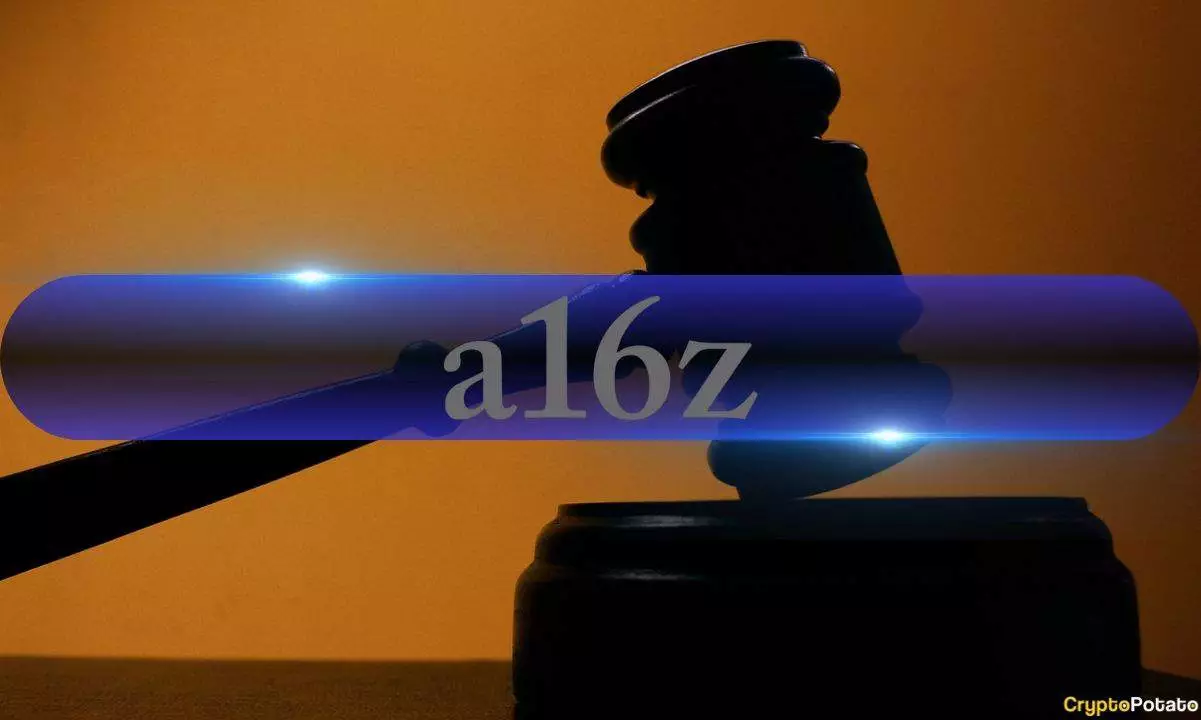The realm of decentralized finance (DeFi) stands at a critical juncture in light of recent regulatory developments in the United States. At the heart of this controversy is the newly proposed broker reporting rule by the U.S. Treasury and IRS, which has drawn fierce criticism from industry leaders and advocates. Michele Korver, head of regulation at Andreessen Horowitz’s blockchain division—A16z Crypto—has emerged as a prominent voice in this battle, arguing that these regulations pose a significant threat to the evolution and accessibility of DeFi technologies.
The crux of the opposition to the broker reporting rule resides in its expansive definition of what constitutes a “broker.” According to the regulation, even platforms that merely facilitate user interactions with decentralized protocols could be classified as brokers, hence subjecting them to an array of new compliance requirements. Korver’s public statement highlights the legal quandaries presented by the rule, as it seems to create burdensome stipulations for entities that operate outside traditional financial frameworks. The implications of this rule reach far and wide, risking not only financial innovation but also the very spirit of decentralization that underpins DeFi platforms.
In a collective response, several influential organizations, including the DeFi Education Fund and the Blockchain Association, have initiated a lawsuit targeting the broker rule, seeking judicial intervention to prevent its implementation. With Korver at the forefront, A16z is not merely a bystander but an active participant in mounting legal challenges to the regulations. This alignment underscores a broader sentiment within the crypto community that regulatory overreach is not only detrimental to innovation but also fundamentally at odds with the crown jewel of DeFi: its ability to offer accessible, consumer-friendly financial services.
Jake Chervinsky, a well-known figure in crypto policy, reinforces this sentiment by praising the industry’s rapid response to regulatory threats. The litigation unfolded within a mere 24 hours of the rule’s announcement, showcasing the crypto sector’s readiness to defend its interests. This maneuver reflects an evolution of policy infrastructure that seeks to balance innovation with compliance, albeit under the persistent threat of overregulation.
Prominent DeFi leaders have also weighed in on the potential repercussions of the broker reporting rule. Hayden Adams, founder of Uniswap, articulated concerns regarding the intention behind the timing of the regulations, suggesting a deliberate attempt to stifle innovation. This worry is echoed across the ecosystem, as developers and advocates work tirelessly to challenge the character and intentions of these regulations. For many, it represents a pivotal moment that could define the U.S. stance on fintech and the role it plays in the global economy.
Moreover, Katherine Minarik, Uniswap’s Chief Legal Officer, criticized the rule for “misclassifying” DeFi technology as traditional brokers, leading to unnecessary complications and excessive regulatory burdens. Her statement resonates with many in the community who view these moves as an exercise in bureaucracy that could hinder the growth of an innovative sector designed to democratize access to financial services.
The Road Ahead: Hope and Resistance
Despite the complexities introduced by these regulations, the resilience and creativity of the DeFi community shine through. With ongoing legal challenges and lobbying efforts in Congress, advocates argue that there remains a window of opportunity to recalibrate the regulatory landscape. Industry leaders—backed by legal counsel—are committed to ensuring that DeFi retains its core principles of transparency, accessibility, and user empowerment.
As Michele Korver astutely observes, the regulatory landscape for DeFi requires continuous monitoring and vigorous defense. The stakes are high; failure to challenge this regulation could lead to a significant exodus of innovative DeFi projects from the U.S. The fight against excessive regulation underscores the need for dialogue between policymakers and industry stakeholders, fostering an environment where innovation can flourish without drowning in red tape.
In the face of formidable regulatory challenges, the decentralized finance sector must navigate a precarious landscape. The recent broker reporting rule serves as a crucial litmus test for the industry’s mettle and adaptability. As advocates unite in opposition and seek judicial remedies, the future of DeFi innovation hangs in the balance. It is imperative that the community remains vigilant, asserting its position as a transformative force in the financial sector while relentlessly pushing back against overreaching regulations.
















Leave a Reply